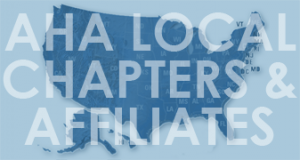Helping Others: Establishing a Caring Committee for Your Local Group

While the rejection of supernaturalism is important to humanistic philosophy, the cornerstone of humanism is its concern for the well-being of society. Humanism is about action: helping each other out, not because of a god, but because it’s the ethical thing to do. Taking this idea in stride, many local groups have continually been their community’s heroes in times of need.
One such program is the Humanist Helpers of the Humanists of Greater Portland in Oregon. Part of their social committee, it was implemented to assist members during times of need or emergency. According to Willie Willworth, a member of the Humanist Helpers, the Humanists of Greater Portland have always helped each other on an ad hoc basis, but having a program made it more official. Establishing such a committee can also attract more volunteers to help with anything ranging from moving assistance to home and hospital visits to picking up medication and supplies for home-bound members. This is perhaps something important for a minority group like atheists and humanists who can be often ostracized from mainstream communities where it’s assumed that without religion one simply can’t be good.
Such help is always appreciated, says Tom Ikelman of the Humanist Association of the Greater Sacramento Area, which also has a similar program called the Caring Committee. Tom was a beneficiary of his group’s caring committee and appreciated the acts of kindness from his fellow humanists in his time of need. He mentions that being in need—being sick, disabled, or house-bound—is often a lonely situation. Visits from group members, get well cards, and errand runs are small gestures that can help a lot. It was through his experience as a beneficiary that Tom began volunteering as well. It’s about community, he says; people go to church for the community, and humanist groups can and must offer the same. It’s a part of the “ideals that we espouse,” he says, “We have to demonstrate these ideals and show charitable giving in our own community.”
He mentions that humanist groups are in the right when they’re doing political actions—protests, education, voicing their concerns for social justice—but the support system that we can give each other is just as important. Tom says other groups should not forget about social programs: not just helping each other, but also celebrating and meeting with each other. He recommends activities such as potlucks, parties, and secular holidays such as HumanLight (December 23), Darwin Day (February 12), and National Day of Reason (first Thursday of May).
Willie Willworth agrees: “I would highly recommend it to groups that have a big enough group of active volunteers.”
Reason makes us atheists. Community makes us humanists.
If your local group is interested in establishing a caring/helping committee, or if you’d like to share your stories of how your local group helps its members, email us at enguyen@americanhumanist.org.
Eric Nguyen is the field coordinator for the American Humanist Association.
